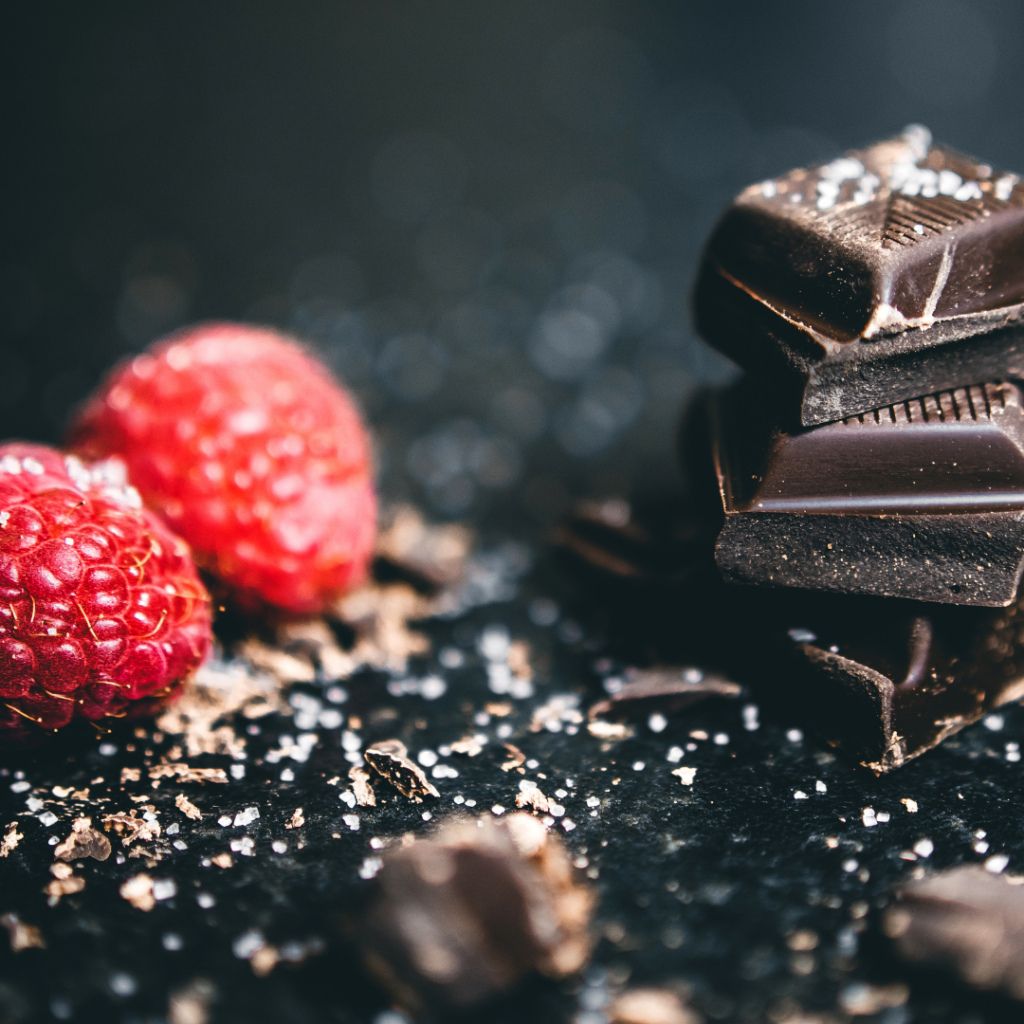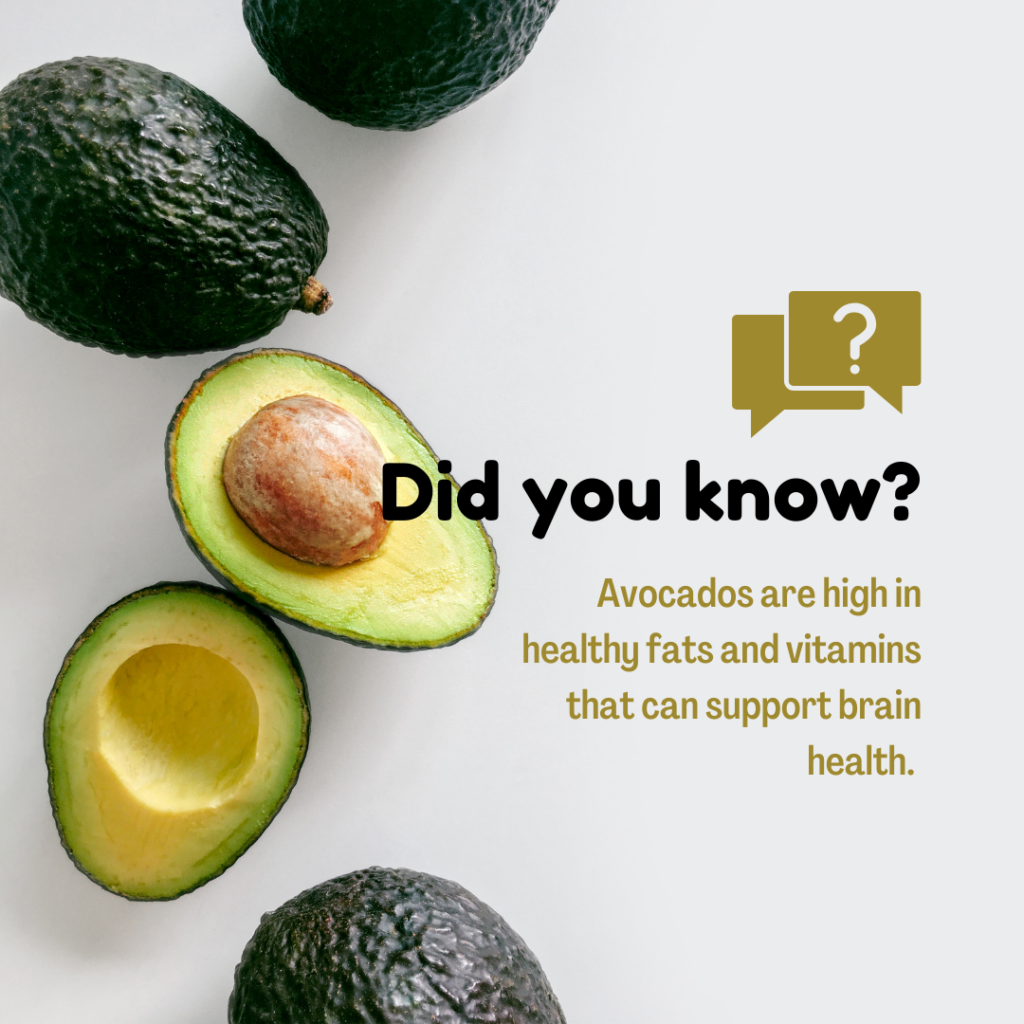Brain Foods: The Best Food for the Brain
The best food for the brain supports brain health, memory, and cognitive function. While there is no one magic brain food, there are many foods that scientists and nutritionists agree are beneficial for the brain.
At Ageless Grace, we focus primarily on physical exercises to keep the brain in tip-top condition. But that doesn’t mean we ignore healthy food, stress management, and sleep, all critical components of a healthy brain and thriving body.
The Best Food for the Brain
Much like exercise, the best food for the brain is the food you will eat often and enjoy. (The best exercise is the exercise you will do!) If you can’t stand a brain food listed below, don’t try to force yourself to eat it. Meals should be both enjoyable and healthy.
It’s easy to eat well when delicious, healthy food is easy to access. Identify the foods you enjoy from the list below, and keep your pantry and fridge stocked. Choose organic fruits, veggies, and grains when you can. The list is in no particular order.
Brain Food #1 Chocolate

We thought we’d start with the brain food that will get everyone excited. That’s right – chocolate! But before you run out and buy a Snickers, the kind of chocolate you eat matters for brain health.
You want to look for rich dark chocolate – aim for 70% dark or higher. Dark chocolate contains flavonoids, which can improve blood flow to the brain and boost cognitive function. Sugary milk chocolate will not give you the benefits you’re looking for. Limit your dark chocolate intake to 30-60 grams a few times weekly.
Don’t see dark chocolate at the checkout aisle where typical chocolate bars are sold? Most grocery stores now have a specialty section with finer chocolate and candies.
Brain Food #2 Leafy Greens and Cruciferous Vegetables
Leafy greens such as spinach, collard greens, and kale are rich in vitamins and minerals that can support brain health. Leafy greens are also high in nutrients such as folate, beta-carotene, folic acid, and lutein, which are essential for brain function and can help improve memory and cognitive performance.
Want to protect your brain health? Eat cruciferous vegetables! Broccoli and other cruciferous veggies contain metabolites known to have neuroprotective properties.
You really can’t eat too many leafy greens; having a small side salad with meals is always a great option. But, if you’re looking for a beneficial number, ¼ of a cup per day or 1 ½ to 2 cups a week is all you need to get a brain boost. What about cruciferous vegetables? The USDA recommends eating 1.5 to 2.5 grams per week.
Brain Food #3 Whole Grains
Good carbs are not your enemy! Instead of eating white bread and white pasta, think whole grains such as brown rice, whole wheat bread, quinoa, barley, and oatmeal. Whole grains are high in fiber, which can support overall brain health. Many whole grains are rich in vitamin E, an important antioxidant that prevents neurological damage and helps reduce the presence of free radicals.
Whole grains also help regulate blood sugar levels and provide a steady energy supply to the brain. Don’t want to be on a blood sugar rollercoaster? Eat whole grains.
Bonus! Whole grains are also beneficial to your cardiovascular health.
Aim for three servings of whole grains daily, totaling at least 48 grams.
Brain Food #4 Fatty Fish
Fish is so yummy, and it’s good for your brain! Fish such as salmon, mackerel, anchovies, herring, and sardines are rich in omega-3 fatty acids, which are important for brain health. The healthy fats in fish have been tied to lower levels of beta-amyloid in the blood. Beta-amyloid is a protein that forms dangerous clumps in the brain that often lead to Alzheimer’s disease.
Does the fish you choose matter? YES! Look for low-mercury fish. Aim for a minimum of two servings of low-mercury fatty fish per week.
Brain Food #5 Turmeric
When it comes to anti-inflammatory and antioxidant properties, turmeric, which contains a compound called curcumin, is where it’s at! Turmeric has been shown to improve both memory and cognitive function, protect against Alzheimer’s, and support brain cell growth. More curry, please!
Unless you eat meals with turmeric in it every day, it’s unlikely you will be able to get what you need from food. Look into taking a curcumin supplement.
Brain Food #6 Berries
Beautiful, colorful berries! Blueberries, strawberries, and blackberries are incredibly delicious and high in antioxidants and flavonoids, which can protect the brain from inflammation and oxidative stress. They have also been shown to improve memory and cognitive function.
Eating at least two half-cup servings of berries per week has been shown to slow memory decline by as much as two-and-a-half years. Wowza! Pass the berries, please.
Brain Food #7 Avocados

Many people shy away from avocados because they are high in fat and calories. But don’t count avocados out! Avocados are high in healthy fats and vitamins that can support brain health. In fact, a study in Nutrients found that people who ate avocado daily for six months saw a significant boost in problem-solving efficiency and working memory.
If you’re concerned about calories, eat ¼ – ½ of an avocado daily, and cut back somewhere else. Avocados are a powerful brain food!
Brain Food #8 Nuts and Seeds
Nuts and seeds such as walnuts, almonds, pistachios, macadamias, pumpkin seeds, flaxseeds, and chia seeds are high in healthy fats, protein, and fiber, which can support brain function. Many seeds also contain substantial levels of vitamin E, an antioxidant that can help protect the brain from damage.
If you must choose just one nut or seed, we recommend eating walnuts, a powerhouse food packed with omega-3 fatty acids and antioxidants.
Want to improve your cognitive abilities? Eat 15-30 grams of nuts and seeds daily – and don’t be afraid to mix it up with different types.
Brain Food #9 Coffee and Tea
Hooray! Another brain food (drink) that is likely already a daily habit. Caffeine boosts the brain’s information-processing ability. If you are sensitive to caffeine, try green tea as a gentler option.
Four cups of coffee or black tea a day are safe for most adults, but if you feel jittery or experience any other negative symptoms, cut back on the amount you drink.
Brain Food #10 Tomatoes
Finally, our 10th best food for the brain: tomatoes! Lycopene is great for your brain, and tomatoes are full of it. Lycopene is a carotenoid shown to fend off cognitive disorders such as Parkinson’s and Alzheimer’s.
Three medium tomatoes contain about 9 milligrams of lycopene, which can seem like a lot to eat. But remember that you can get lots of lycopene from tomato sauces, soups, and even ketchup.
Variety: The Best Food for the Brain
The brain requires a variety of nutrients to function optimally, so try to incorporate the above foods into a healthy and balanced diet. When planning meals, eat plates chockfull of fruits, vegetables, nuts, seeds, and other whole, unprocessed foods. Fatty fish also supports brain health, but be sure to choose wisely.
Stay tuned for our next article on supplements for a healthy brain.